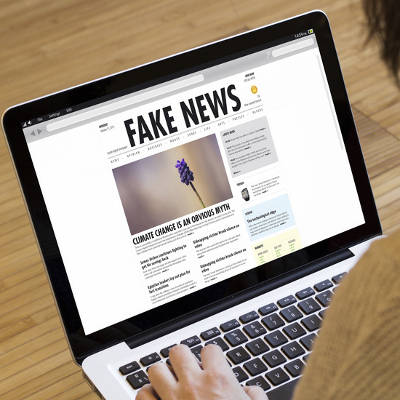Don’t Let Bias Influence Your Business

Have you ever heard of the term “bias?” It has a negative connotation to it, but it’s not necessarily a bad thing. A bias can predispose you to a skewed consideration or thought when met with what is known to be a seemingly neutral stimuli. In some cases, they can cause more harm than good, which is why it’s a good thing to take another look at how you approach certain situations. Researchers have discovered several trends about why we hold certain biases, as well as how we can overcome them.
Don’t Let Bias Influence Your Business

Have you ever heard of the term “bias?” It has a negative connotation to it, but it’s not necessarily a bad thing. A bias can predispose you to a skewed consideration or thought when met with what is known to be a seemingly neutral stimuli. In some cases, they can cause more harm than good, which is why it’s a good thing to take another look at how you approach certain situations. Researchers have discovered several trends about why we hold certain biases, as well as how we can overcome them.
Don’t Let Bias Influence Your Business

Have you ever heard of the term “bias?” It has a negative connotation to it, but it’s not necessarily a bad thing. A bias can predispose you to a skewed consideration or thought when met with what is known to be a seemingly neutral stimuli. In some cases, they can cause more harm than good, which is why it’s a good thing to take another look at how you approach certain situations. Researchers have discovered several trends about why we hold certain biases, as well as how we can overcome them.
Defining a Bias
Let’s get one thing out of the way right now: there is no justifying biases against other groups of people. Despite this, some have argued that biases originated as survival tools in ages past. A little bit of skepticism probably saved the skins of many of our ancestors!
Bias expert Maureen Berkner Boyt offers another theory about why the human brain errs toward bias. She states that the brain uses bias to keep itself from experiencing information overload. Boyt suggests that the world is filled with stimuli and a huge amount of information for our brains to process. Her theory is that biases keep our brains processing information in a quicker and easier manner. In essence, bias serves as a kind of filter.
If this filter isn’t in place, there is a chance that our brains wouldn’t be able to process all of the incoming information. Therefore, biases can be looked at as defense mechanisms that keep our brains from breaking down. Boyt’s theory also includes that biases can be associated with certain events, allowing for mental shortcuts leading to conclusions. Thus, biases in this sense aren’t necessarily a bad thing, and can be used to learn or save brain processing power for truly important scenarios.
How This Perception Creates Issues for Businesses
Biases, in this sense, can create problems for organizations in the form of prejudice, even if it’s not obvious right from the get-go. The prejudices can even be something as simple as adhering to stereotypical beliefs about any number of topics. The most notable instance of this can be seen in gender roles within organizations. Some industries are populated in favor of one gender over the other, whether the disparity is immediately apparent or not. These biases can have long lasting influences on the way that certain processes are accomplished for a business.
An orchestra generally includes mostly male musicians. While these people might not be hired based on their gender specifically, blind auditions have been shown to yield a closer male/female ratio. A study of GitHub coders shows similar results, showcasing that the typically male-dominated field often favors female coders in a blind environment.
Have Your Decisions Been Biased?
Unless someone is pointing out your biases, it can be difficult to identify that you have one. Even from the mindset that biases are shortcuts to facilitate easier decision making, this can suggest that they are simply not rational. This can be the case, but ultimately a strong bias is going to influence the holder’s thoughts and feelings. For those who would like to look at this phenomenon, there are tools out there that help you identify biased decisions. Harvard’s Project Implicit includes quizzes that you can use to identify and eliminate biases toward a number of different factors.
Once you know which biases your business is suffering from, you can take steps toward resolving them. One of the best ways that your organization can eliminate particular biases related to technology management is by reaching out to Catalyst Technology Group at (317) 705-0333. We’ll work with you to make sure that you can make educated decisions about your technology solutions.
How Fake News Can Influence Business

Information is one of the most valuable assets available to businesses, but to be fair, there’s an awful lot of falsified information found on the Internet. Due to the increased focus on data acquisition and dissemination, false information is more harmful and easy to manipulate than ever before. The thing about this is that “fake news” is actually reliant on technology to work.
Your Relationship with Fake News
Research suggests that cyber propaganda generally requires three factors in order to be successful. The first includes the tools and services used to create the propaganda. The second is a platform to share it, such as social media. The third is a motivation behind the campaign itself–also known as why it’s being implemented itself. Without any of these three, spreading false information becomes difficult at best.
The problem here is that all of these have become plentiful in the past few years, allowing fake news campaigns to take off.
The Dark Web is close to the ideal solution for those hoping to spread vitriol, hate, and propaganda across the web. Social media allows stories with little-to-no substance to spread like wildfire due to some people’s goal to share and spread information regardless of the truth. Fake news itself has been used as a political tool, but it can be used to influence stocks, public opinion, and other variables.
China Has a Fake News Marketplace
Fake news can be found easily enough in marketplaces. The one we’ll discuss is Xiezuobang, a content distribution service in China. This service charges a user based on where the article has been published, which makes it very easy to abuse. If the user is taking advantage of systems that allow public opinions to be measured and modified, posts can be shared out on 3000 websites as frequently as 100 posts a minute.
These tactics can be used to flood Chinese social networks with posts from influential users who have dumped their own funds into promoting their content. The user’s popularity will eventually determine the price of the of the content sharing service.
The Global Issue
These practices are not limited to just China. In fact, researchers have collected information from various disinformation campaigns in the United States, Russia, and Middle Eastern countries, all of which help them identify trends in how these tools are used and what types of campaigns have been formed.
Regardless of where you’re located, you need to be on the lookout for cyber propaganda and fake news, be it politically motivated or for business-manipulation. After all, fake news can only stand to benefit those who spread it.
What is your opinion on this disturbing and emerging trend? Let us know in the comments.

